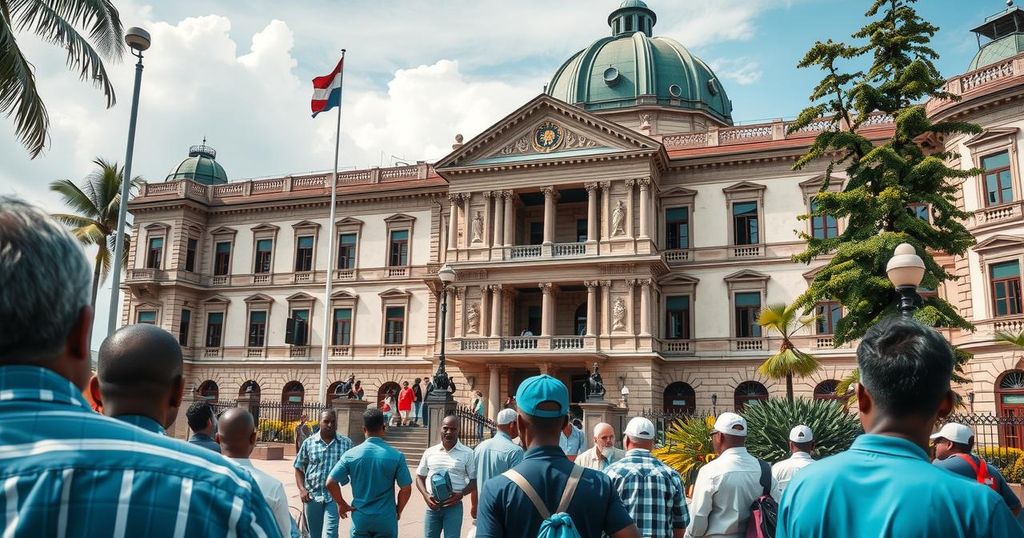Voters in Comoros are electing members for the 33-seat parliament, amid allegations of electoral misconduct tied to President Azali Assoumani’s past re-election. Approximately 338,000 citizens are registered to vote, following the last parliamentary elections in January 2020. With claims of authoritarianism prevalent, some opposition parties are urging a boycott, while others, like the Hope of the Comoros party, continue to participate. Results are expected by the end of the week.
Voters in Comoros are participating in the election for the country’s 33-seat parliament, marking an important political event in the Indian Ocean archipelago. This comes one year after President Azali Assoumani’s controversial re-election, which the opposition claims involved significant electoral misconduct, allegations that have been categorically refuted by officials from the ruling party. Polling stations opened early on Sunday, with approximately 338,000 registered voters.
The last parliamentary elections occurred in January 2020, and nearly 100 candidates were approved by the Supreme Court to compete in this election. Assoumani, who has ruled Comoros since 1999 following a coup and has since secured three electoral victories, faces accusations from his opponents of authoritarian governance. Additionally, there are concerns regarding his intentions to designate his son, Nour El-Fath, as his successor prior to the conclusion of his term in 2029. In 2024, Assoumani enhanced his son’s authority, empowering him to oversee all governmental operations.
Some opposition factions, including the Juwa party led by former President Ahmed Abdallah Sambi—who faces a life sentence imposed in 2022—are advocating for a boycott of the elections. Conversely, other opposition figures have opted to engage in the election process. Hamidou Karihila, a candidate representing the opposition Hope of the Comoros party, stated, “The Azali regime is weakened … by participating in these elections we are contributing to further exposing the flaws in its system and accelerating its inevitable fall.” Election results are anticipated by Friday.
The Comorian political landscape has been characterized by instability and frequent power changes since the late 1990s. President Azali Assoumani first seized power through a military coup in 1999. His subsequent elections have been marred by claims of unfair practices, which have contributed to a contentious political climate marked by accusations of authoritarianism. The opposition’s calls for boycotts reflect the divisions and strategic disagreements among political parties, underscoring varying approaches to confronting the current regime. The participation of nearly 100 candidates in the current election reflects a competitive political environment, although reactions from the opposition suggest a lack of faith in the electoral process’s integrity. The focus on Assoumani’s son potentially following in his footsteps as a leader highlights concerns over dynasty politics and governance in the archipelago.
The parliamentary elections in Comoros represent a significant moment in the nation’s political trajectory, especially in light of the ongoing allegations of electoral misconduct surrounding President Assoumani’s administration. With diverse reactions from opposition parties, ranging from calls for boycotts to engagement in the electoral process, the elections have sparked critical discourse around governance and the legitimacy of the political system. The outcome of these elections may have profound implications for Comoros, as results are expected shortly.
Original Source: www.moreechampion.com.au






